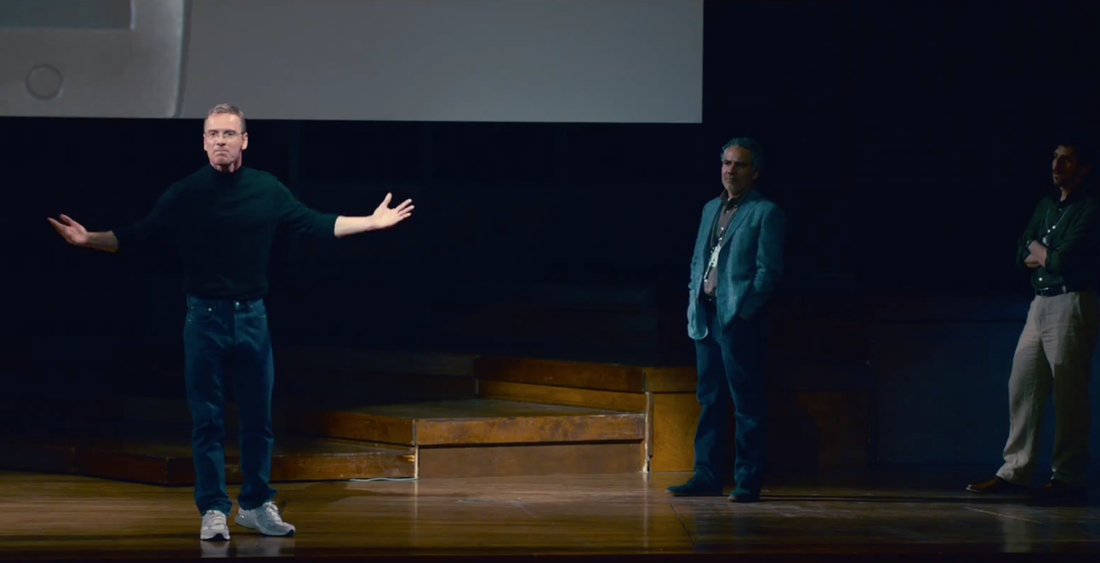|
By all accounts, Steve Jobs should have worked. Take Aaron Sorkin, the screenwriter for The West Wing and The Social Network. Cast Michael Fassbender and Kate Winslet as the two leads, sharp and capable sparring partners. Finally, tap director Danny Boyle (28 Days Later, 127 Hours), who can take an ordinary room and build tension as tight and coiled as a spring.
Mix it all together, and somehow, the result is awkward and tedious. Steve Jobs is boring. |

TheCroakingFrog says: Skip It
What Hopped: brims with talent, structure is risky and creative, Winslet is solid What Croaked: chemistry between director, writer and actors; too chatty; lacks focus Recommendation Key: See It Now: see ASAP See It: see if you have time Skip It: see at your own risk Forget It: avoid at all costs |
In the end, I blame the film chemistry: a mismatch of talents, none of which work well together. Sorkin does best with fierce, determined characters. His scripts always spark debate, but his characters are unwavering: pure of purpose and convinced of their worldview (at least until the end). But Fassbender brings a layer of gray that doesn’t sync with Sorkin’s script. Is Jobs singleminded or conflicted? Self-satisfied or self-doubting? Fassbender’s Jobs is a notch too subtle for Sorkin. Or perhaps Sorkin’s Jobs is an ounce too rigid for Fassbender.
Sorkin, however, has never met a five-second window he couldn’t fill with dialogue, and it’s a fact on full display in Steve Jobs. To his credit, Boyle tries everything to make it work, using clever camerawork to convey moments of claustrophobia (close shots), intensity (low, quick pans) and neglect (still, wide angles). In the end, however, the cinematography feels more like a bug fix than a feature.
What could have saved the film? David Fincher (Fight Club, Gone Girl) comes to mind — the surgical director who worked with Sorkin on The Social Network, and who demanded $10 million to do Steve Jobs before Sony turned him down.
Today, John Sculley says he wishes he had hired Jobs back after forcing him out of Apple in 1985. When it comes to Steve Jobs, one has to wonder whether Sony can relate.


 RSS Feed
RSS Feed
